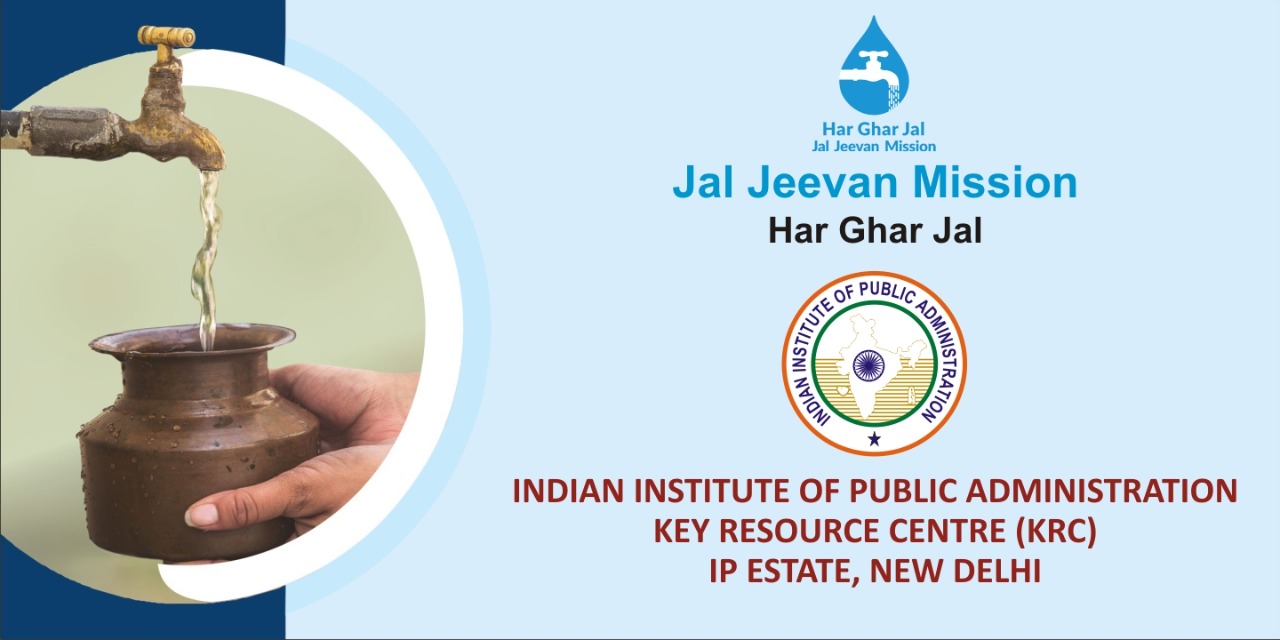
I. Participatory Planning, Implementation and O&M for Har Ghar Jal
Objectives
Scope
This course is intended for participants at the middle management level including DWSM, GPs/VWSCs, or Pani Samiti members, representatives of PRIs, NGOs, Self Help Groups engaged as Implementation Support Agencies (ISAs), School functionaries, health workers and other stakeholders.
II. Cost Determination and Sustainable financing for Rural Water Services
Broad Objective
The training programme provides a systematic approach that can be applied t o determine the overall cost of service delivery based on respective cost estimates for operation and maintenance, institutional support, and rehabilitation and expansion.
Scope
This course is intended for senior policymakers, State and District Officials and Engineers of organisations responsible for water management at different levels. The engineers will be trained for development of socio-managerial skills and technical knowledge enhancement to manage public utilities.
Expected Outcome
The training programme would provide a brief overview on cost determination and sustainable financing for rural water services
Webinar on Planning, Implementation, and Monitoring of 'Har Ghar Nal-Har Ghar Jal' Yojna
I. Participatory Planning, Implementation and O&M for Har Ghar Jal
Objectives
Scope
This course is intended for participants at the middle management level including DWSM, GPs/VWSCs, or Pani Samiti members, representatives of PRIs, NGOs, Self Help Groups engaged as Implementation Support Agencies (ISAs), School functionaries, health workers and other stakeholders.
II. Cost Determination and Sustainable financing for Rural Water Services
Broad Objective
The training programme provides a systematic approach that can be applied t o determine the overall cost of service delivery based on respective cost estimates for operation and maintenance, institutional support, and rehabilitation and expansion.
Scope
This course is intended for senior policymakers, State and District Officials and Engineers of organisations responsible for water management at different levels. The engineers will be trained for development of socio-managerial skills and technical knowledge enhancement to manage public utilities.
Expected Outcome
The training programme would provide a brief overview on cost determination and sustainable financing for rural water services
Webinar on Planning, Implementation, and Monitoring of 'Har Ghar Nal-Har Ghar Jal' Yojna